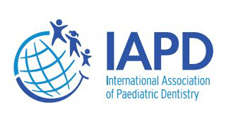
Is this a trick question? After all, you and your family probably already know quite a lot about cavities:
- It all begins when bacteria-filled plaque sticks to teeth and starts to attack enamel. How?
- Because the bacteria in plaque use the sugars and other foods we eat to produce acids.
- These acids gradually weaken teeth by dissolving minerals that help make up our enamel (a process called demineralization).
- Over time, a hole, or cavity, develops in the tooth surface.
- Left untreated, bacterial decay can spread to the inside of the tooth, creating a more serious cavity.
Dr. Dinah Abioro might discover an unexpected cavity at a regularly scheduled dental exam at our Bowie office, but there are also some symptoms that should have you calling for an appointment. A cavity can cause sensitivity when eating something hot or cold, or it can be painful, or you might even notice visible discoloration or damage to the tooth surface.
So, if your child has any of these symptoms, it’s a cavity, right? It might be—but it might not. Sometimes, because the symptoms are similar, what we suspect is a cavity is really enamel erosion.
The bacteria-created acids weaken enamel. But it’s not just bacteria that subject our teeth to acids. Acidic foods are one of the leading causes of tooth erosion.
And while we expect damage from a lifetime of acidic foods and beverages to catch up with us as we age, the fact is that erosion is becoming a problem even for young children. How is this possible? Let’s look at some food chemistry.
Our normal saliva pH level is around a 7, which is neutral. Any number lower is acidic; any number higher is alkaline. Acidic foods have a low pH (the pH of lemon juice, for example, measures between 2 and 3), and can reduce our normal, neutral pH level. When saliva pH levels drop to 5.5 or lower, tooth enamel starts to demineralize, just as it does when exposed to the acids from oral bacteria.
Regularly snacking on citrus and other acidic fruits, fruit juices, flavored drinks, sour candies, and other acidic foods can cause enamel erosion. Especially erosive are sports drinks, energy drinks, and colas, because they contain some combination of citric acid, phosphoric acid and/or carbonation.
So, when might you suspect enamel erosion? Your child might be sensitive to hot or cold foods, or feel pain, or even have noticeable enamel loss or pitting. Even though these symptoms may not have been caused by plaque and bacteria, acidic erosion from our diets leaves weakened enamel just as vulnerable to cavities and decay.
How to avoid erosion?
- Serve acidic foods sparingly, or as part of a meal. This helps our saliva pH stay in the neutral zone.
- Balance acidic foods with low-acid choices to neutralize acids and restore a normal pH balance. For example, mix those acidic berries with a banana.
- Use a straw! These are not only fun, but this simple solution keeps erosive drinks from bathing young teeth in acids.
- Encourage your child to drink water instead of an acidic beverage, or drink it afterward to rinse acids away. The pH of pure water? A perfect, neutral 7. And by using tap water instead of bottled water, you’ll be providing fluoride, which helps strengthen enamel.
- What about brushing right after eating or drinking something acidic? Ask Dr. Dinah Abioro if your child should rush for the brush. We may recommend waiting 30 minutes or so after an acidic treat to give the teeth time to remineralize. Otherwise, brushing might cause more wear and tear on enamel.
- Finally, while foods are often the source of acid erosion, medical conditions can cause erosion as well. Talk to us about ways to minimize erosion while addressing these medical needs.
Be proactive. Ask your Dr. Dinah Abioro about healthy drinks and snacks for healthy teeth. Make sure to keep on top of brushing and flossing, and stick with fluoride toothpastes. And visit our Bowie office regularly for exams and cleanings.
There’s really no trick to it—preventing enamel erosion helps keep your child’s teeth structurally strong and cavity-free for a lifetime of beautiful and healthy adult smiles.









